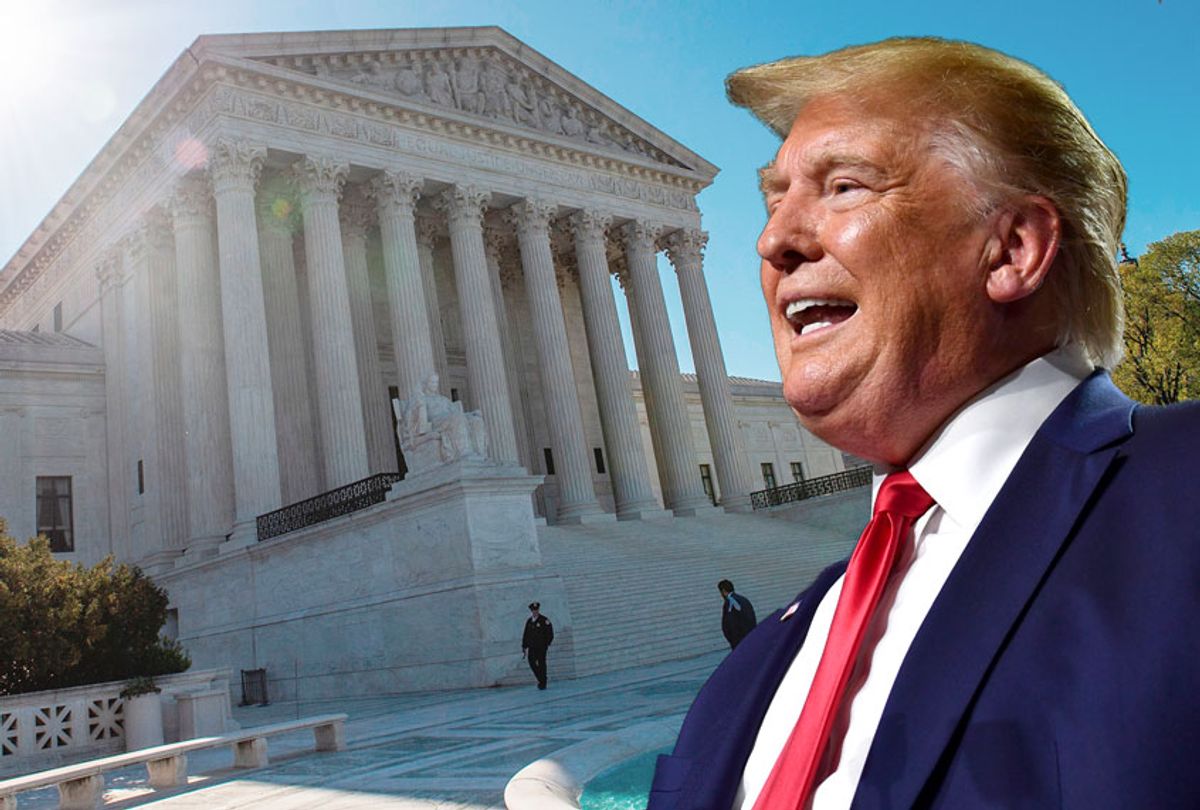When Trump lawyer D. John Sauer spoke before the Supreme Court last week calling for presidential immunity for “official acts,” he repeatedly argued that at least one revolutionary mind would be on his side: Benjamin Franklin.
But a leading legal historian pointed out that Sauer took a single sentence Franklin said at the Constitutional Convention of 1787 out of context – while completely ignoring that Franklin also called for “the regular punishment of the Executive where his misconduct should deserve it, and for his honorable acquittal when he should be unjustly accused.”
“Franklin would be horrified,” Holly Brewer, University of Maryland professor and legal historian, said in an X thread.
Brewer was an author of an amicus brief penned by the nation’s preeminent historians in the immunity case, which said “no plausible historical case” supports Trump’s contention that the original meaning of the Constitution infers his argument for “permanent immunity from criminal liability for a President’s official acts.”
“Once again, Trump’s lawyers are trying to turn a president into a king,” she said. “That they pretended that Franklin meant that Presidents should not be tried for high crimes— is somewhat shocking to this historian.”
Former President Donald Trump is fighting charges of “conspiring to thwart the peaceful transfer of power following the 2020 election,” notes the historians’ brief.
Sauer has centered Franklin in his argument for presidential immunity, writing in a recent filing that: “The Framers viewed the prosecution of the Chief Executive as a radical innovation to be treated with great caution. Benjamin Franklin stated at the Constitutional Convention: 'History furnishes one example of a first Magistrate being formally brought to public Justice. Every body cried out ag[ain]st this as unconstitutional.'"
But in an interview with Salon, Brewer said: “Franklin's actual speech, the whole of it, if someone read the next few sentences, says exactly the opposite of what John Sauer was implying.”
At one point during oral arguments, Justice Ketanji Brown Jackson said it was her understanding that every U.S. president “has understood that there was a threat of prosecution if for no other reason than the Constitution suggests that they can be prosecuted after impeachment. The office of Legal Counsel has said forever that presidents are amenable to a threat of prosecution…”
She then asked Sauer: “So it seems to me that you are asking now for a change in what the law is related to immunity.”
Sauer again provided the Franklin quote, which he introduced saying: “I would quote from what Benjamin Franklin said at the Constitutional Convention, which I think reflects best the Founders' original understanding and intent here, which is, at the Constitutional Convention.”
Brewer said Sauer’s omission appears intentional: “By leaving out the rest of this quote, Trump's lawyers seem to have been deliberately misleading the Supreme Court justices.”
We need your help to stay independent
Brewer said that the Trump legal team’s use of selective and misleading quotes to bolster their argument that presidential immunity dates back to the founding is not only ahistorical – but could also have dangerous consequences.
“If a president is completely above the law and can do whatever you want, that means there is no security for anyone in this country and that the whole structure of the laws can be rendered pretty much meaningless,” Brewer said.
So, what was Franklin actually talking about at the Constitutional Convention?
According to Brewer, he was referring to the death warrant of King Charles I of England, who was tried, convicted and executed in 1649.
“Franklin meant that after Charles II was restored to power in 1660, he oversaw the trial and execution of those who signed his father's death warrant (the "regicides"),” Brewer wrote.
In historian Geoffrey Robertson’s book, “The Tyrannicide Brief: The Story of the Man Who Sent Charles I to the Scaffold,” the author recounted how a judge told the jury to reconsider their not-guilty verdict.
“Then, the jury condemned the regicides to be hanged, drawn and quartered (tortured,)” Brewer wrote.
For twenty-first century readers, to be drawn and quartered is a particularly gruesome manner of death.
“It is a kind of death that involves torture as well as just execution,” Brewer told Salon. “Quartering was cutting off your arms and your legs. Drawn is pulling out your guts while you're alive.”
Want a daily wrap-up of all the news and commentary Salon has to offer? Subscribe to our morning newsletter, Crash Course.
And what’s more, Brewer said that Franklin was referring to the trial of a king as against the English Constitution.
As Brewer pointed out, Franklin could not have been referring to the U.S. Constitution – as it was not yet written, at the time of the Constitutional Convention.
Franklin’s speech continued: “What was the practice before this in cases where the chief Magistrate rendered himself obnoxious? Why recourse was had to assassination in [which]. he was not only deprived of his life but of the opportunity of vindicating his character. It [would]... be the best way therefore to provide in the Constitution for the regular punishment of the Executive where his misconduct should deserve it, and for his honorable acquittal when he should be unjustly accused.”
Brewer said Franklin clearly thought “trials were better than assassinations (or revolutions) because he thought they were fairer to the accused.”
Brewer said above all, Franklin, a frequent critic of monarchy, would “have been horrified to be thus represented as a proponent of monarchy.”
“Misrepresenting Franklin's own words before the highest court in the land, portraying our system as a monarchy, not as a republic, has the potential to transform it into that very monarchy that Franklin's listeners dreaded to discover in Sept 1787,” Brewer wrote.
Franklin is well-known for another quote at the Constitutional Convention: “A republic… if you can keep it.”

Shares